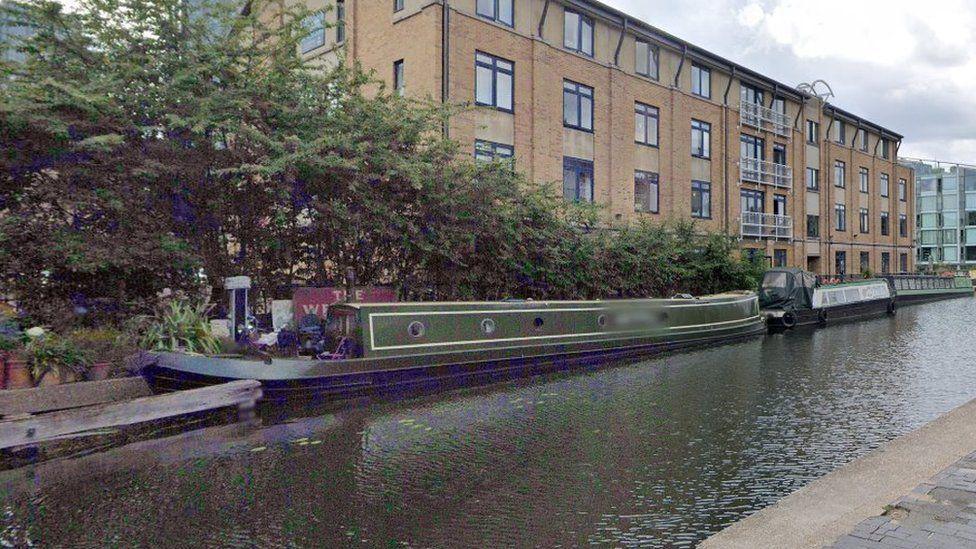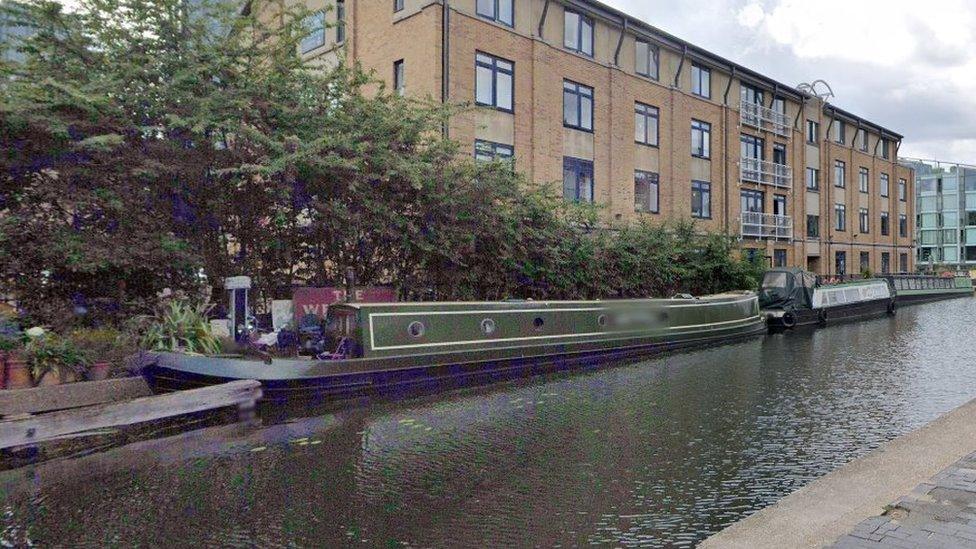Girl, 5, drowned in Islington canal, coroner concludes

The girl was found in Regent's Canal
- Published
A young girl with learning difficulties who went missing from her north London home drowned in a canal, a coroner has concluded, as they made recommendations to a housing association that "didn't act" on complaints about a safety barrier.
Malika Hibu, five, used a thumb lock to open the door of her home at Crest Buildings, Wharf Road, Islington, on 17 February and ran towards the canal, where she was found 25 minutes later. She died in hospital.
St Pancras Coroner Mary Hassell said she would make two reports to prevent future deaths, one in respect of planning, as there was no evidence of consideration of the barrier when a planning application for the development was made in 2014.
The second report would be to housing association Peabody, which the inquest heard was responsible for maintaining a safe barrier between homes and the canal, and did not act on complaints about safety.
A Peabody spokesperson said after the inquest that it would "consider all the points raised in the coroner's report" after the "heartbreaking and tragic accident".
'Funny, sweet, kind'
Malika, who had autism spectrum disorder, was a pupil at the Bridge School, in Islington, a special school for children with severe learning difficulties and autism.
During the inquest, her mother, Huria Ali, described her as "funny, she's sweet, she's kind, but she does not talk because she has got autism".
The inquest heard arguments about who owned the wall on which the safety barrier was built.
Peabody sent an email to Islington Council in October 2023 to inquire about who owned the barrier but did not receive a response and only chased them a week before Malika's death.
Tracy Packer, managing director for Peabody North East London, told the inquest that if the council had replied, Peabody would have acted sooner to make the area safer.
She repeatedly denied Peabody's full responsibility for the accident.
She said: "It is difficult to be responsible for everybody's actions. I understand that is a really difficult thing."
Asked whether Peabody accepted responsibility for what happened, she replied: "In its entirety, I would say no."
'Remain extremely concerned'
The coroner said: "All of the evidence points in the same direction, which is that the housing association Peabody did in fact own the top of the wall.
"It didn't realise it owned the top of the wall, it didn't consider the barrier, it didn't risk assess it, it didn't act on any complaints.
"The rail that was present presented no appreciable barrier to a little girl who was just playing and was interested in the water below."
The coroner added: "Peabody is responsible for many such buildings and I remain extremely concerned that they didn't know for sure what they owned and what they didn't own. They didn't risk assess a very obviously potentially dangerous situation.
"What concerns me about all of that is a culture, it's a way of thinking, and that's what I want to bring to Peabody's attention."
A temporary structure has now been erected to prevent further accidents.
Listen to the best of BBC Radio London on Sounds and follow BBC London on Facebook, external, X, external and Instagram, external. Send your story ideas to hello.bbclondon@bbc.co.uk, external
- Published23 February 2024
